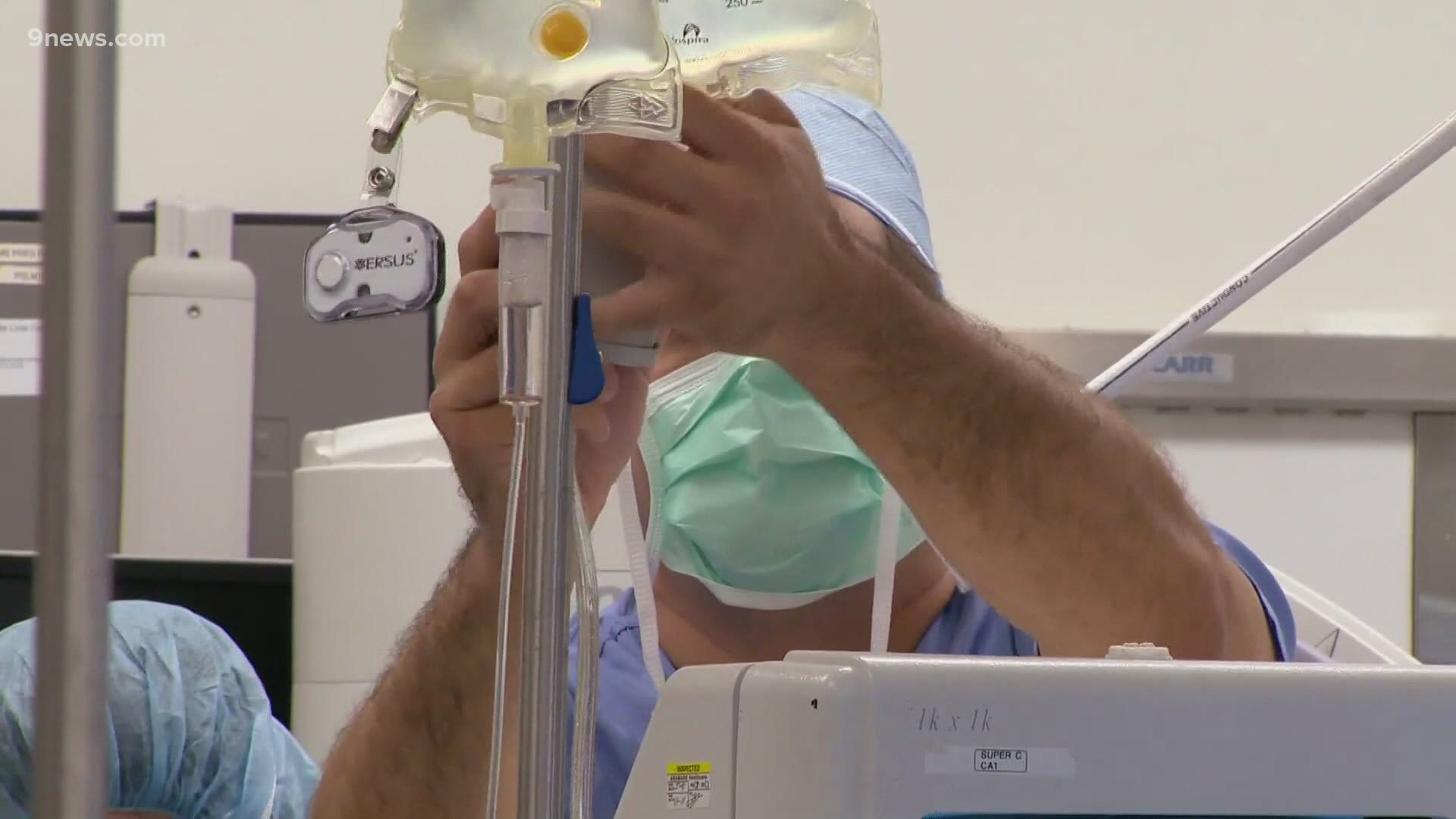DENVER — COVID-19 survivors joined Gov. Jared Polis for a briefing Tuesday to talk about their struggles with the virus and to shed light on the experience of those who lived but face a long recovery and lasting health issues.
Polis also discussed the rising number of COVID-19 cases in Colorado. On Tuesday, there were 1,433 new cases and 538 COVID-19 patients hospitalized. A continued increase in hospitalizations would test the state's hospital capacity, Polis said.
"Modeling suggests if we don't change what we're doing, [hospitalizations] will exceed all of existing hospital capacity by the end of the year," he said.
Every age group has seen an increase in hospitalizations, with the median age of 57 for hospitalized patients, Polis said.
The state is preparing for "surge capacity" of thousands of emergency hospital beds in places like the Colorado Convention Center, the governor said, adding that it would take one to four weeks to get up to full capacity, if necessary.
There was some good news: As treatments and care have improved, the average length of a hospital stay for a COVID-19 patient has dropped from six days to five, and the mortality rate among those who were hospitalized has decreased from about 15% last spring to 4-7% now.
"If we don’t do better in Colorado, then more Coloradans will die unnecessarily," Polis said. "Even if you’re one of those who makes it out, it doesn’t mean it’s easy or clear or free."
For those who are hospitalized with the virus and live, the recovery can be long and difficult. To illustrate that point, Polis invited three COVID-19 survivors to share their stories: Barbara Gould, Kim Powell and Clarence Troutman.
Each of them contracted COVID-19 in March or April. After weeks of fighting the virus, they're still dealing with health complications, including breathing issues, headaches, weight loss and fatigue.
Gould said she became sick after a return flight to Denver from Atlanta in March, and she spent 91 days in the hospital and 65 of those on a ventilator. Afterward, her muscles had atrophied and she had to relearn how to swallow. She said when she looks in the mirror, she doesn't recognize herself.
"I was a healthy, active person pre-COVID," she said. "I have a long road ahead of me still. It’s too soon to tell what the new normal is going to be."
Tuesday's news conference comes at a time when COVID-19 data in Colorado show the state is at a critical level with cases, hospitalizations and the positivity rate all on the rise.
Local officials have issued warnings that if things don't improve, new restrictions could be put in place. In the metro area, that's already happening. Denver and Adams County have moved to Level 3 restrictions, and Arapahoe County has moved to Level 2.
The levels are based on a COVID-19 dial that establishes a restriction framework for counties based on metrics like positivity rate and hospital capacity.
Counties can use the dial as a guide to apply to enter one of five phases that outline restrictions aimed to contain the spread of the novel coronavirus. Counties will move back and forth between levels based on their metrics.
SUGGESTED VIDEOS: COVID-19 Coronavirus

